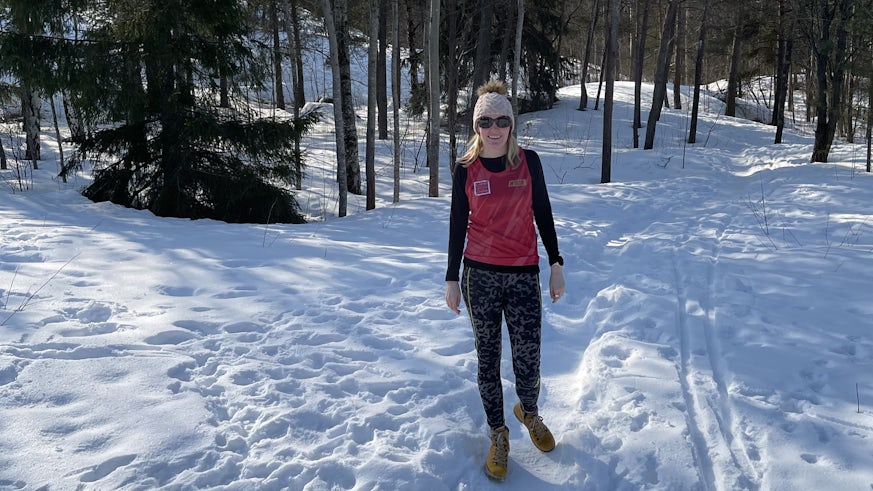Introducing PhD student, Kaisa Pankakoski
20 December 2022

We spoke to School of Welsh PhD student Kaisa Pankakoski to find out more about her research, what led her to it, and why she would encourage others to go down the same academic route.
Who are you, where are you from, and what is your academic background up to this point?
I was born and raised in Finland. Two weeks after completing compulsory education, I decided to move abroad in search of adventure. I ended up working and studying in five different countries and a dozen different cities before settling down in Cardiff!
I completed an undergraduate degree in Portsmouth, and then the International Journalism (MA) at Cardiff University in 2005. Before returning to academia to complete a PhD, I worked in journalism, research, translation, and marketing for over ten years.
What made you decide to study a PhD at Cardiff University’s School of Welsh?
I wanted to investigate multilingual families. My experience completing a postgraduate degree had been a really positive one so I wanted to stay local at Cardiff University. I knew the School of Welsh had a wide range of expertise from history to sociolinguistics, so I arranged a meeting with the Director of Postgraduate Research Studies. A few months later I started a PhD!
Do you live in Cardiff? If so, what is your favourite thing about the city?
I felt at home in Cardiff straight away. I love its multicultural and bilingual vibe, longer summers, the parks, the variety of events available, wild swimming, beautiful yoga studios and other opportunities to try out different sports, little quirky cafés, the majority of Welsh people, running paths by the rivers, and the proximity of nature—beaches, waterfalls, and mountains are all within an easy reach.
What led you to your chosen research topic?
My children are trilingual. I was intrigued by the different experiences and outcomes of multilingual upbringing I was seeing around me. Not all children born into transnational homes grow up speaking two or more languages. It is quite common that potentially multilingual children do not acquire a minority or heritage language. Some families manage to transmit the languages whereas others do not, resulting in the children having only passive or limited knowledge of their other language/s. I wanted to know why this was the case!
Please give a brief overview of your chosen research topic.
My study looks at fourteen case study families in two linguistically diverse bilingual capital city areas of Helsinki and Cardiff. The case study families are official minority language speakers (Swedish or Welsh). The children were also exposed to the official majority language (Finnish or English), and at least one additional language.
I used questionnaires, semi-structured interviews, and observations in the family homes to examine the families' situations. Data was analysed using reflexive thematic analysis.
Tell us about your PhD journey.
Due to my other work, the emotional load, and caring responsibilities, I am completing the PhD part-time. The School of Welsh has been very accommodating in this aspect, and it will be a little sad to say goodbye when I finish my thesis! I started off as a self-funded student and eventually managed to get funding from a few different funding bodies, allowing me to lessen my other work responsibilities.
It has been a long, bumpy, challenging, and surprisingly enjoyable journey. I had the chance to attend several conferences in location pre-pandemic.
I have also taken all opportunities to take extra-curricular activities: I have given expert interviews to magazines and newspapers, authored academic and non-academic articles, written blog posts, ran workshops for multilingual families and educators, co-organised a multilingualism conference and now co-host a multidisciplinary multilingualism research group. I took part in several School of Welsh events and I was awarded first prize winner at my favourite ever doctoral academy event; Images of Research.

Why would you encourage others to undertake a PhD at Cardiff University School of Welsh?
The School of Welsh is a small school with wonderful, knowledgeable staff and a friendly environment. It is a lovely Welsh-speaking community and those that come from non-Welsh speaking backgrounds are also welcomed with open arms! Both of my supervisors have been supportive and just wonderful people.
What are your plans after graduating?
I love research work and writing, so would definitely want to use these skills and knowledge in a future job! I would like to take my Welsh learning to the next level, find a rescue dog, and also carry on working on a freelance basis.

